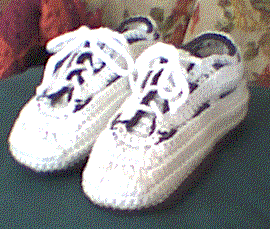The Shoes 


Return to Personal Memory Ethnographies homepage